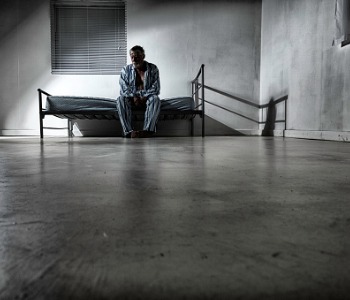Guilty But Mentally Ill (GBMI) Psychological Evaluations
in Chicago, Atlanta, and Fort Lauderdale
Dr. Steven Gaskell at Psycholegal Assessments, Inc. provides Guilty But Mentally Ill assessments, as well as other Forensic Psychological Evaluations. Call us at 630-903-9193, 404-504-7039, or 954-332-3513 for a free consultation. The following information should be strongly considered prior to proceeding as Guilty But Mentally Ill (GBMI).
The first Guilty But Mentally Ill (GBMI) legislation was in 1975 in Michigan. The GBMI legislation was proposed in an effort to reduce successful insanity defenses. It was a back-door way to get to abolition. It invites a compromise verdict by the jury. It gives the illusion of offering compassion and special treatment for the defendant. In reality, the defendant found GBMI is punished exactly as if he were found guilty.
All mentally ill convicts should be treated. Their mental state at the time of the act is not relevant. The treatment should be given in prison or upon transfer to a maximum security hospital. It has been found that those found Guilty But Mentally Ill (GBMI) often receive longer sentences than defendants simply found guilty and remain incarcerated longer than hospitalized insanity acquittees. It has been reported that in Illinois and Michigan prisons, up to two thirds of persons found GBMI did not receive regular psychiatric or psychological treatment. In Pennsylvania and Georgia, over 80% of GBMI verdicts are the results of pleas, rather than jury or bench trials. In addition to the 12 states that have added GBMI as an alternative choice to an insanity defense, Nevada abolished their insanity defense and replaced it with GBMI.
Guilty But Mentally Ill Landmark Cases
Estelle v. Gamble (US Supreme Court, 1976)
This ruling guaranteed treatment for mentally ill prisoners.
Georgia Code Section 17-7-131 - Guilty But Mentally Ill
(1) In all cases in which the defense of insanity is interposed, the jury, or the court if tried by it, shall find whether the defendant is:
- (A) Guilty;
- (B) Not guilty;
- (C) Not guilty by reason of insanity at the time of the crime;
- (D) Guilty but mentally ill at the time of the crime, but the finding of guilty but mentally ill shall be made only in felony cases; or
- (E) Guilty but mentally retarded, but the finding of mental retardation shall be made only in felony cases.
(2) A plea of guilty but mentally ill at the time of the crime or a plea of guilty but mentally retarded shall not be accepted until the defendant has undergone examination by a licensed psychologist or psychiatrist and the court has examined the psychological or psychiatric reports, held a hearing on the issue of the defendant?s mental condition, and is satisfied that there is a factual basis that the defendant was mentally ill at the time of the offense or mentally retarded to which the plea is entered.
(2.1) A plea of not guilty by reason of insanity at the time of the crime shall not be accepted and the defendant adjudicated not guilty by reason of insanity by the court without a jury until the defendant has undergone examination by a licensed psychologist or psychiatrist and the court has examined the psychological or psychiatric reports, has held a hearing on the issue of the defendant?s mental condition, and the court is satisfied that the defendant was insane at the time of the crime according to the criteria of Code Section 16-3-2 or 16-3-3.
(3) In all cases in which the defense of insanity is interposed, the trial judge shall charge the jury, in addition to other appropriate charges, the following:
- (A) I charge you that should you find the defendant not guilty by reason of insanity at the time of the crime, the defendant will be committed to a state mental health facility until such time, if ever, that the court is satisfied that he or she should be released pursuant to law.
- (B) I charge you that should you find the defendant guilty but mentally ill at the time of the crime, the defendant will be placed in the custody of the Department of Corrections which will have responsibility for the evaluation and treatment of the mental health needs of the defendant, which may include, at the discretion of the Department of Corrections, referral for temporary hospitalization at a facility operated by the Department of Human Resources.
- (C) I charge you that should you find the defendant guilty but mentally retarded, the defendant will be placed in the custody of the Department of Corrections, which will have responsibility for the evaluation and treatment of the mental health needs of the defendant, which may include, at the discretion of the Department of Corrections, referral for temporary hospitalization at a facility operated by the Department of Human Resources."
(g)(1) Whenever a defendant is found guilty but mentally ill at the time of a felony or guilty but mentally retarded, or enters a plea to that effect that is accepted by the court, the court shall sentence him or her in the same manner as a defendant found guilty of the offense, except as otherwise provided in subsection (j) of this Code section.
A defendant who is found guilty but mentally ill at the time of the felony or guilty but mentally retarded shall be committed to an appropriate penal facility and shall be evaluated then treated, if indicated, within the limits of state funds appropriated therefor, in such manner as is psychiatrically indicated for his or her mental illness or mental retardation.
Areas of Expertise











